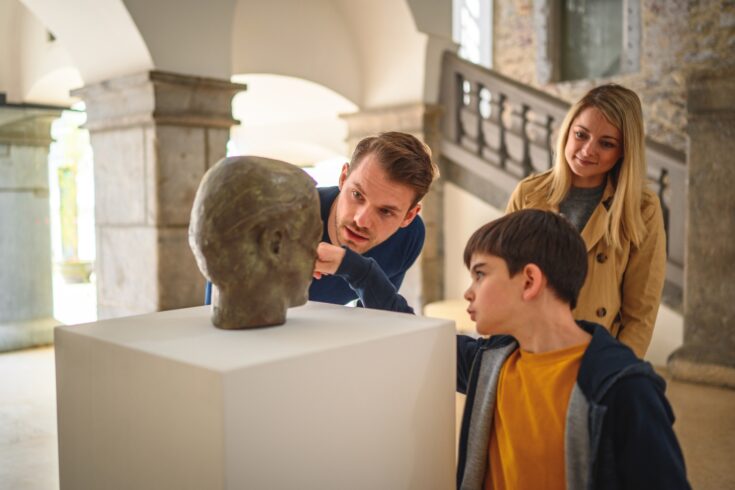They will contribute to the Department for Culture, Media and Sport’s (DCMS) Culture and Heritage Capital Programme.
One project will focus on the National Museums Liverpool Waterfront Transformation project, which will provide a case study for local and regional culture-led initiatives and levelling-up.
Another will apply techniques from behavioural economics to assess the economic and cultural value of digital culture and heritage assets.
AHRC and DCMS funding
They are supported through £3.1 million research funding opportunity, funded by the Arts and Humanities Research Council (AHRC) and DCMS. The funded projects will work in collaboration with stakeholders including Historic England, National Museums Liverpool and the National Trust.
Arts and Heritage Minister Lord Parkinson said:
Culture and heritage bring a huge range of benefits to people’s lives, not only by creating jobs, offering great days out and inspiring pride in local places, but also by helping our education and wellbeing.
It’s important that we can measure these benefits so that we can make the most effective decisions to maximise their potential – especially where taxpayers’ money is being invested. These cutting-edge research projects will help us work towards that goal.
Impact on policymaking
AHRC Executive Chair Professor Christopher Smith said:
The culture and heritage sectors are a vital part of our economy, but we do not have a clear or agreed set of criteria for measuring all their relevant benefits, including the undoubted impacts of intangible benefits. This has a significant impact on policy making.
This project will help give us a better basis on which to evaluate the contribution of culture and heritage to society, and is part of AHRC’s commitment to developing sound evidence to inform innovative and globally respected policy for our cultural and creative economy.
Benefits of culture and heritage
Access to culture and heritage has many benefits, such as improving our wellbeing, providing education, and contributing to local identity.
However, there is no agreed approach to measuring the contribution of the cultural and heritage sector, which means that it is often understated.
Sector specific guidance is already available to value the impact of interventions in crime, environment, health and transport.
Help guide decisions
It is important that similar guidance is also available to help guide decisions on culture and heritage, where social cost benefit analysis or value for money analysis is needed.
This is because the valuation of benefits and costs plays an important role in deciding how the government should spend taxpayers’ money.
In 2021, DCMS launched the Culture and Heritage Capital programme.
The programme takes a holistic approach and values all benefits and costs, not just financial benefits such as jobs and other standard measures of economic output such as gross domestic product.
Further information
The projects
Cultural heritage, people and place: understanding value via a regional case study
University of Liverpool, Tamara West, £420,657
Valuing digital cultural and heritage assets
University of Portsmouth, Karen McBride, £359,015
Understanding the value of outdoor culture and heritage capital for decision makers
University of Exeter, Amy Binner, £372,904
Integrating lifetimes in heritage capital
University College London, Josep Grau-Bove, £359,780
CAVEAT: triangulation of values using different valuation methods
University of Glasgow, Patrizia Riganti, £528,825
Developing a taxonomy for culture and heritage capital
Historic Buildings and Monuments Commission for England, Adala Leeson, £469,041

